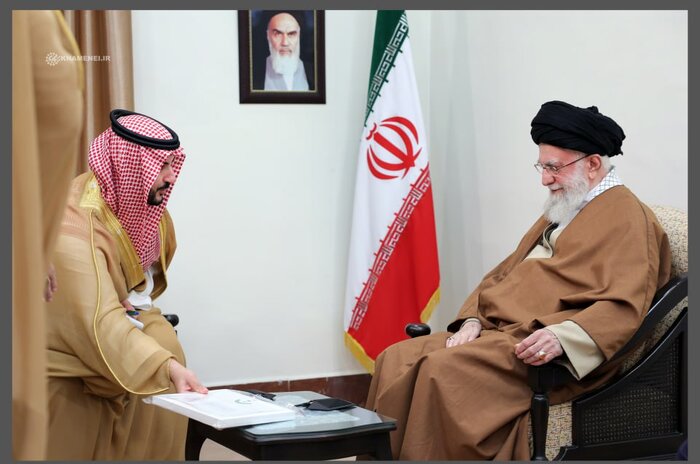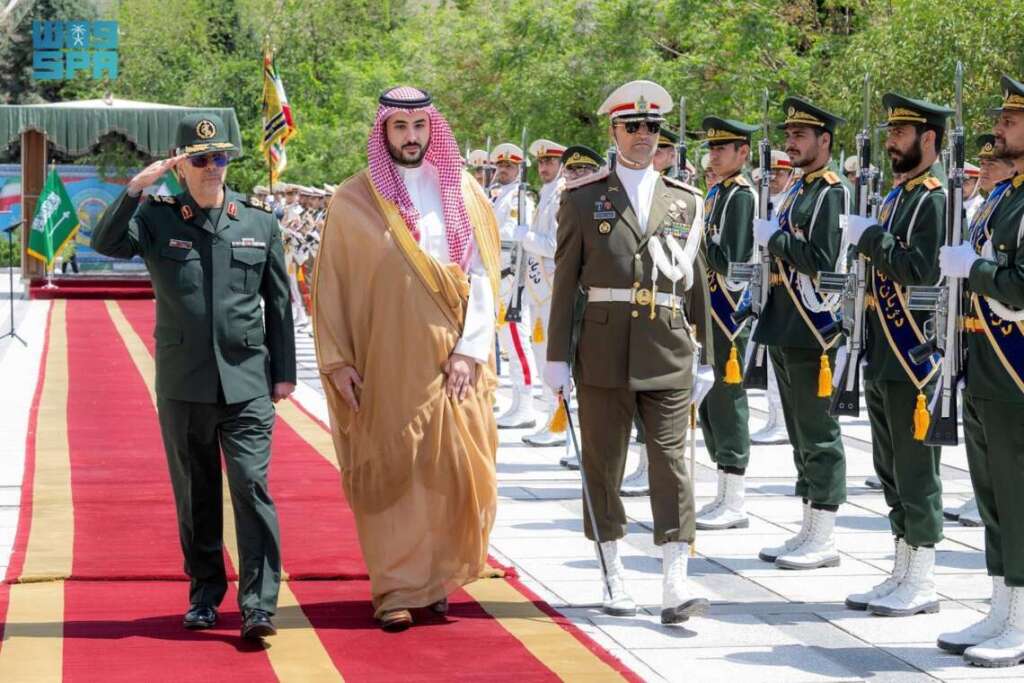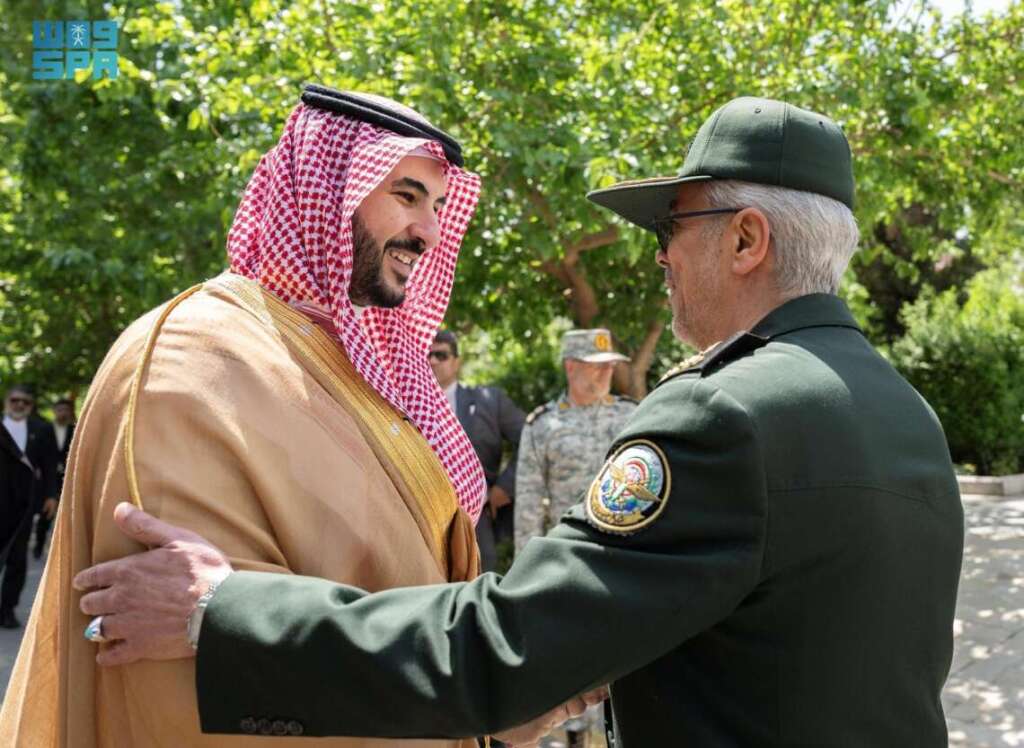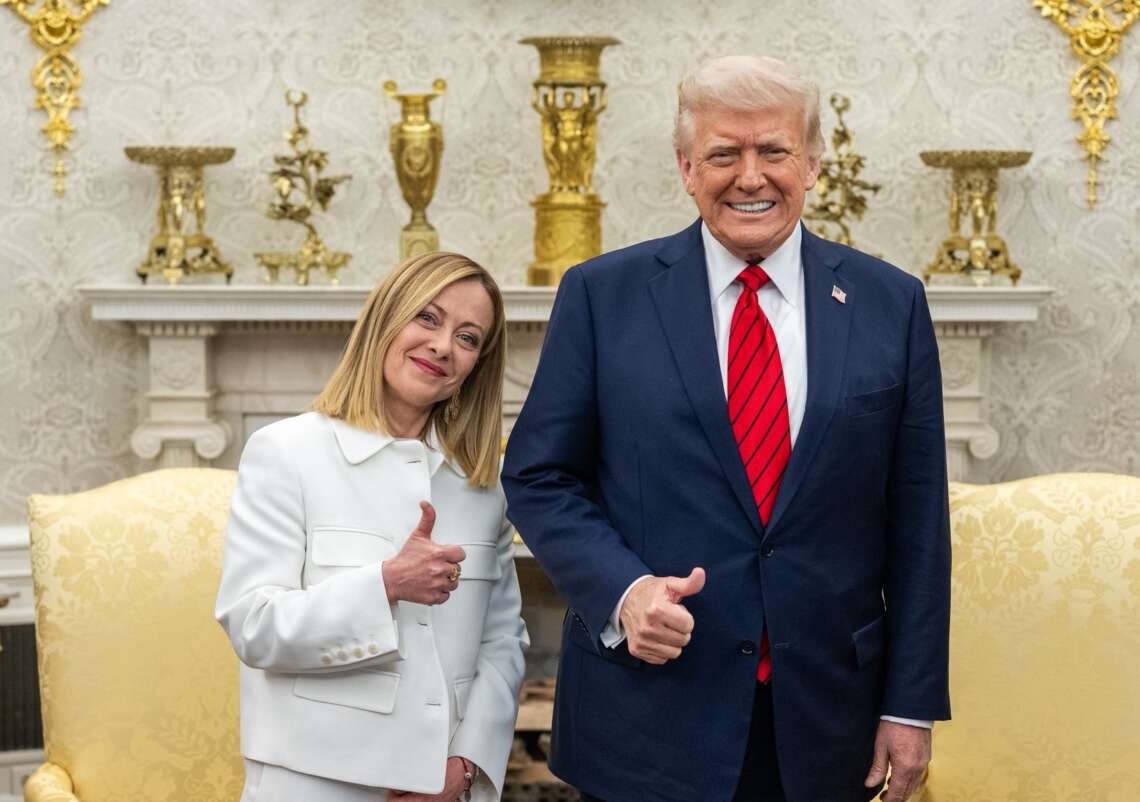Saudi Defence Minister Prince Khalid bin Salman visited Tehran and engaged in crucial meetings with top Iranian officials, including President Masoud Pezeshkian and Supreme Leader Ayatollah Ali Khamenei.
In a significant step towards reconciliation and cooperation, Saudi Minister of Defence Prince Khalid bin Salman Al Saud visited Tehran on Thursday, engaging in crucial meetings with top Iranian officials, including President Masoud Pezeshkian and Supreme Leader Ayatollah Ali Khamenei. The discussions, focusing on enhancing bilateral ties and regional stability, come in the wake of an agreement brokered by China in 2023 to restore diplomatic relations between Saudi Arabia and Iran after years of tension and hostility.
Prince Khalid delivered a written message from Saudi King Salman bin Abdulaziz Al Saud to Ayatollah Khamenei, marking the continuation of dialogue between the two nations. Both sides expressed their willingness to overcome past hostilities, with Khamenei stressing that strengthening ties between Tehran and Riyadh could benefit both nations, despite facing opposition from some quarters. The Supreme Leader emphasised the importance of mutual support among Islamic nations and the need to resist foreign influence, framing the relationship as vital for the broader Islamic world.

Following his meeting with Khamenei, Prince Khalid also held discussions with President Pezeshkian, who reiterated Iran’s readiness to expand cooperation across all sectors, including political, economic, and security matters. The Iranian President highlighted the deep historical, cultural, and religious ties between the two nations and emphasised that a united Muslim world could be a model of peace, security, and prosperity. He pointed to the potential for both countries to resolve regional issues without foreign intervention, promoting self-reliance among Islamic nations.
Pezeshkian further underscored the importance of cohesion within the Islamic world, stressing that such unity is essential for addressing regional disputes and alleviating poverty in Muslim-majority countries. He also expressed optimism that cooperation between Iran and Saudi Arabia could serve as an example for other nations in the region, contributing to long-term stability.
The Saudi Defence Minister, for his part, described his meetings with Iran’s Supreme Leader Ayatollah Ali Khamenei and Chief of Staff of the Iranian Armed Forces Mohammad Baqeri earlier on Thursday as “very useful, positive, and constructive”. He called Iran and Saudi Arabia “two main pillars of the region,” stressing their strong relations could be an effective model for convergence and synergy in the Muslim world.

“We discussed our bilateral relations and topics of mutual interest,” the Saudi Defence Minister wrote on X.
“Our belief is that the relationship between the Islamic Republic of Iran and Saudi Arabia is beneficial for both countries,” Iranian state media cited Khamenei as saying in the meeting on Thursday.
The meetings also included talks with Iran’s Chief of Staff of the Armed Forces, Major General Mohammad Baqeri, who remarked on the positive trajectory of military relations between Saudi Arabia and Iran since the landmark Beijing agreement. Baqeri described the discussions as constructive and noted that the two countries’ military cooperation had the potential to act as a stabilising force in the region.
The Saudi Defence Minister’s visit comes at a time of heightened regional tensions, particularly regarding the ongoing conflicts in Yemen, Syria, and Gaza. Both sides acknowledged the importance of collaboration to address these issues and emphasized the shared goal of fostering peace and security in the Gulf region. Pezeshkian further addressed the situation in Gaza, suggesting that a unified stance from Islamic nations could mitigate the ongoing humanitarian crisis.
Prince Khalid’s visit also coincided with the arrival of the head of the International Atomic Energy Agency (IAEA), Rafael Grossi, in Iran, signalling growing international interest in Iran’s nuclear ambitions and ongoing talks with the United States. These developments have put further pressure on both Saudi Arabia and Iran to align their positions on global security concerns, particularly regarding nuclear proliferation and the broader Middle Eastern geopolitical landscape.

While the Saudi-Iranian relationship has been fraught with challenges, the restoration of diplomatic ties in 2023 marked a pivotal moment in the region’s history. The Beijing-brokered agreement, which led to the reopening of embassies and the resumption of direct communication, has paved the way for further cooperation between the two regional powers. Both nations now appear committed to deepening their ties, with a focus on addressing regional challenges collaboratively rather than relying on external powers.
The recent meetings are part of a broader effort to promote dialogue between regional players, with Saudi Arabia and Iran taking the lead in fostering a more cooperative Middle East. The two countries are set to establish joint working groups in various sectors, including politics, economics, and security, to formalize their cooperation and build a framework for resolving mutual concerns.
Meanwhile, Iranian and US delegations are set to gather in Rome on Saturday for a second round of Omani-mediated negotiations, a week after the longtime foes held their highest-level talks since US President Donald Trump abandoned a landmark nuclear accord during his first term in 2018.
Since re-entering the White House in January, Trump has revived his so-called “maximum pressure” policy, imposing punishing economic sanctions against Iran and threatening military action if Tehran does not agree to a deal.









